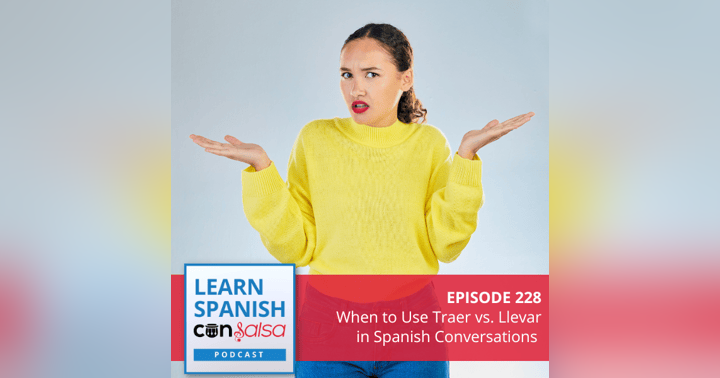4 Embarrassing Spanish Mistakes English Speakers Make

Any English speaker that starts to learn Spanish notices something pretty quickly – many words are very similar between the 2 languages. The fancy linguistic term for this is cognate.
For example, most words in English that end in –tion can easily be translated to Spanish by changing the ending to –ción. Nation becomes nación, transportation becomes transportación, and so on. You usually can’t go wrong with following rules like this.
Until you do.
Some words in Spanish sound suspiciously like a word in English but can have an entirely different meaning. These are called false cognates, and they can make you the butt of many jokes if you don’t watch out for them. Here are a few of my favorites.
Common Mistakes
#1: I’m So Embarazada
This is a pretty common and well-known mistranslation but I love it just the same—especially when a guy says it. If you say something silly you might be tempted to say “estoy embarazada” because that looks very similar to the English word “embarrassed.”
Don’t be alarmed when people start looking at your belly or laughing out loud.
This actually means “pregnant” in Spanish so you can imagine you might be even more embarrassed if you utter this phrase.
The Correct Word: If you find yourself putting your foot in your mouth, you can say “Estoy avergonzado” (of course, if you’re a female you’d say “Estoy avergonzada.”)
And don’t feel bad if you’ve said this. On a recent trip to Costa Rica, I wanted to say “I’m going to enjoy myself” (Voy a disfrutarme) but what I really said was “I’m going to get angry.” The Spanish word for “to get angry” is “enojar” – which in my head looks a lot like enjoy. How embarrassing!
#2: I’d Like to Introducir Myself
Let’s say you’re traveling to a Spanish-speaking country for the first time and want to try out your Spanish skills. You find a bar nearby your hotel and want to introduce yourself to some locals. You approach a young lady and say “Quiero introducirme.”
You think to yourself, what a simple and obvious translation—introducir must mean “to introduce.”
You may notice a perplexed look on the woman’s face. Instead of “I want to introduce myself,” you’ve just told her “I want to insert myself”—which could be taken quite the wrong way.
Hopefully you escape with just a giggle and not a slap across the face.
The Correct Word: The next time you want to introduce yourself to a Spanish speaker, the correct way to say this is “Quiero presentarme.”
Yo Speako Español
Another easy tactic that can steer you horribly wrong is just adding an “a” or an “o” to the end of an English word so it sounds Spanishy.
Most of us instinctively know this is wrong, but hope to skate by in conversation when we can’t think of a word (Me puedes traer un pencilo from the desko?). It seldom works, but let’s just hope you don’t mix up one of these:
#3: Wrap Me in Your Armas
Maybe you want to give someone a big hug, but you don’t know the word for hug in Spanish.
Using the words you know and searching for another way to get your point across, you decide to say “Te quiero en mis armas.” You think you’ve gotten by and cleverly constructed a way to say “I want you in my arms.”
But you really just got violent.
Don’t be fooled by this one. Armas in Spanish similar to arms in English—the ones you start wars with. So unless you’re inviting someone to a battle, you may not want to blurt this one out.
The Correct Word: The word arm in Spanish is brazo. This is very similar to the word for hug (abrazo) so it’s easy to remember. Se puede da un abrazo con los brazos.
#4: Can You Vacuum the Carpeta?
You’re in a department store in Spain trying to buy a vacuum cleaner.
You just realized you don’t know the word for vacuum in Spanish, so you try to explain to the salesman that you need “algo para limpiar la carpeta.”
He looks confused but takes you to the office supplies section and shows you an assortment of folders.
You both look lost.
After making some hand gestures and pointing to the floor, he finally shows you some aspiradoras (vacuum cleaners).
Relieved, you look for the cheapest vacuum you can find.
But you still don’t know why he was showing you stationary moments ago. You ask the salesmean, “¿Qué es una carpeta?”
He points to the file folder on his desk.
The Correct Word: The Spanish word for carpet is alfombra.
The Bottom Line
While sometimes you can get by guessing words in Spanish, as you’ve seen with the aforementioned examples sometimes it can be disastrous.
So the next time you’re tempted to assume the meaning of a word, think twice and look it up in the dictionary first.
Or be bold and try it out—it may be good for a laugh if someone is nice enough to politely correct you.











